
Luna, Moon Goddess by Giulio Bonasone, circa 1570s Artemis, Occult Art, Arte Obscura, Art Et
Their appearance can be either mild, in which case they are represented as "crowned" Buddhas, wearing the ornaments of a bodhisattva ("Buddha-to-be"), or wrathful, in which case they wear crowns of skulls and garlands of severed heads and carry such implements as the chopper and the skull cup. Lunar deity, any god or goddess related to.
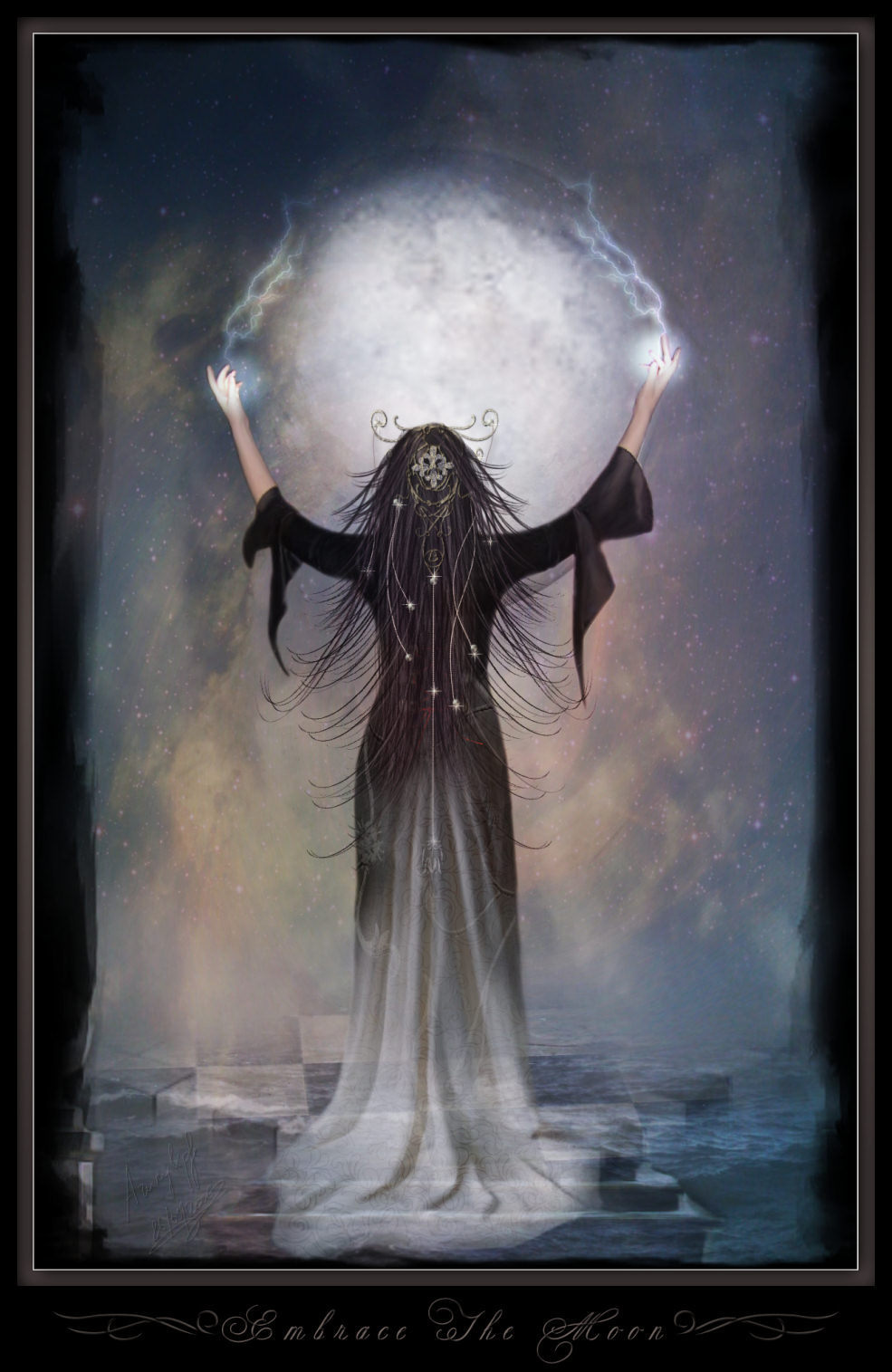
Moon Goddess Moon Photo (4701526) Fanpop
Roman Goddess Luna, a captivating figure in Roman mythology, embodies the essence of the moon. As the daughter of Hyperion and Theia, she is intricately linked to the celestial realm. Sister to Sol and Aurora, Luna holds a significant place among the Roman pantheon.

Luna statue Selene Wikipedia, the free encyclopedia Luna Goddess, Oh My Goddess, Moon
Luna, the Moon Goddess, remains an enduring symbol of mystery, beauty, and spiritual connection. Across cultures and throughout history, humanity has marveled at the Moon's transformative power, attributing it to the divine entity known as Luna. Whether as Selene, Artemis, or Hecate, the lunar deity continues to leave an indelible mark on our.
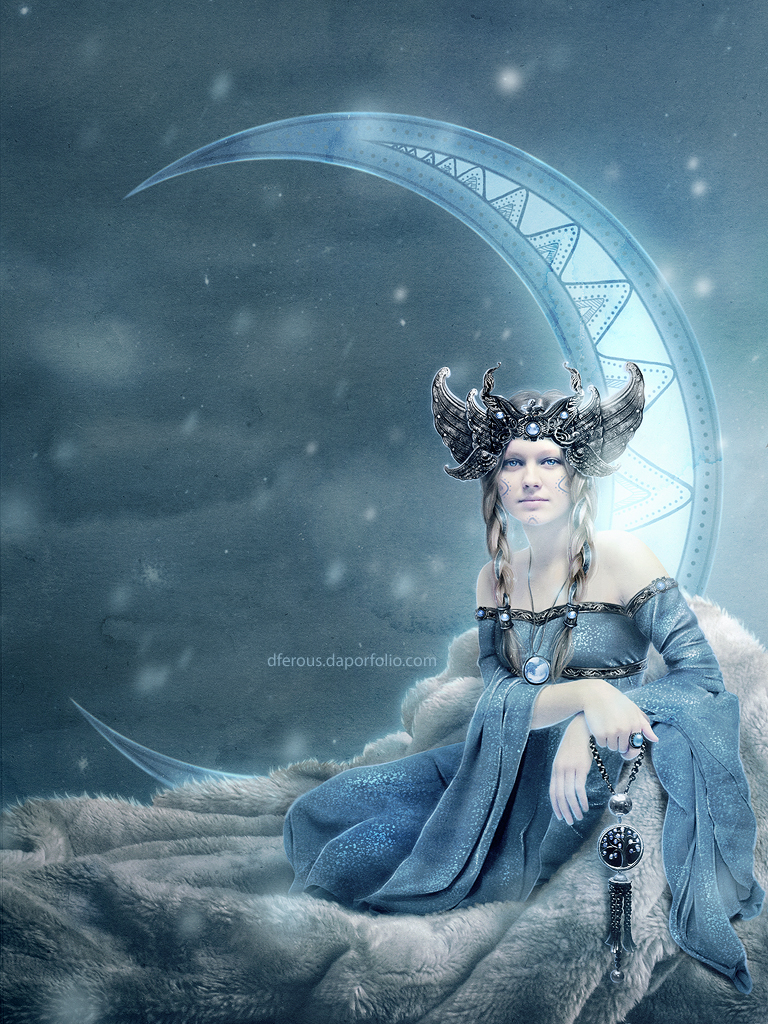
The Moon Goddess (edited) by Dferous on DeviantArt
According to lore, the sixth king of Rome, Servius Tullius, constructed this hallowed temple to pay tribute to Luna's profound influence over the moon's cyclical phases ("Luna, Moon Goddess"). Luna's guiding force in the nocturnal expanse was embodied within the temple, fortifying her importance in the lives of the Romans.
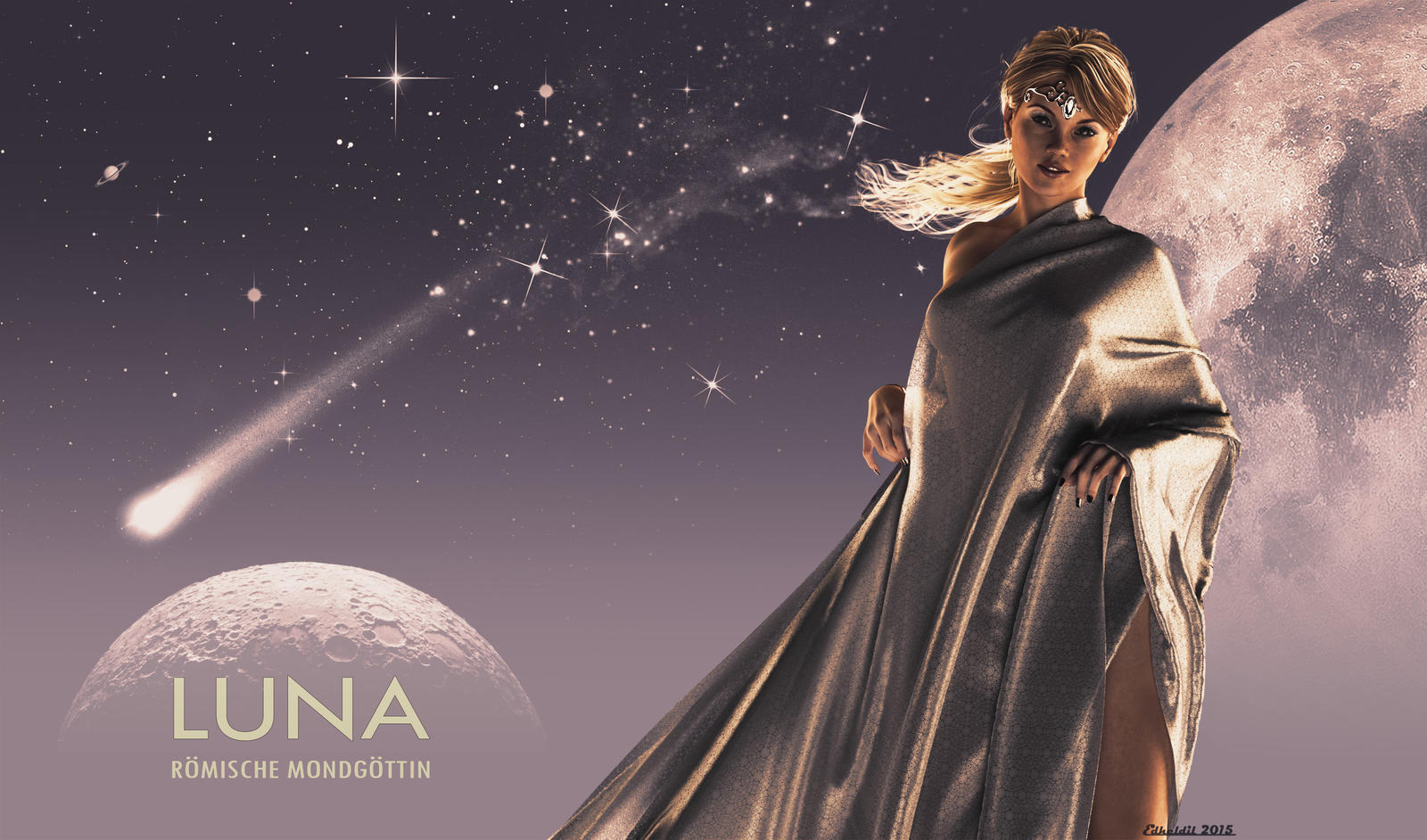
Luna, goddess of the moon! by Edheldil3D on DeviantArt
Luna. Selene was the ancient Greek Titan goddess of the moon. She was depicted as a woman riding sidesaddle on a horse or driving a chariot drawn by a pair of winged steeds. Her lunar sphere or crescent was either a crown set upon her head or the fold of a raised, shining cloak. Selene's Roman name was Lunar.

Moon Goddess Moon goddess, Art, Anime
A lunar deity or moon deity is a deity who represents the Moon, or an aspect of it. These deities can have a variety of functions and traditions depending upon the culture, but they are often related. Lunar deities and Moon worship can be found throughout most of recorded history in various forms. Moon in religion and mythology

Triple Moon Goddess digital art Moon Goddess Diosa de la luna, Lugares de fantasía, Nubes de
A lunar deity is a deity who represents the Moon, or an aspect of it. Lunar deities and Moon worship can be found throughout most of recorded history in various forms. The following is a list of lunar deities : African American Aztec mythology Deity Metztli Goddess Coyolxauhqui God Tecciztecatl Cahuilla mythology Goddess Menily [1] Hopi mythology

Christy Tortland, "Goddess of the Moon" Greek Goddess Art, Artemis Goddess, Greek Mythology Art
The Aztec goddess of the moon Coyolxauhqui ("Golden Bells") was portrayed as in mortal combat with her brother, the sun god Huitzilopochtli, an ancient battle that was enacted in ritual sacrifice at several times in the Aztec festival calendar. She always lost.

Art Print The Goddess Series Luna the Moon Goddess Magickal Bear
Luna is a Roman goddess of the Moon. She is seen as the personification and divine essence of the Moon. Luna is also, in essence, the corresponding female counterpart to the sun god, Sol..

Jen Bartel on Twitter Moon goddess art, Goddess art, Mystical art
November 2, 2023 In almost every culture, moon deities exist signifying the importance placed on the moon by the people of those cultures. In Greek mythology, Selene was the goddess of the moon. She was later Romanized as Luna and became a significant deity in the Roman pantheon.
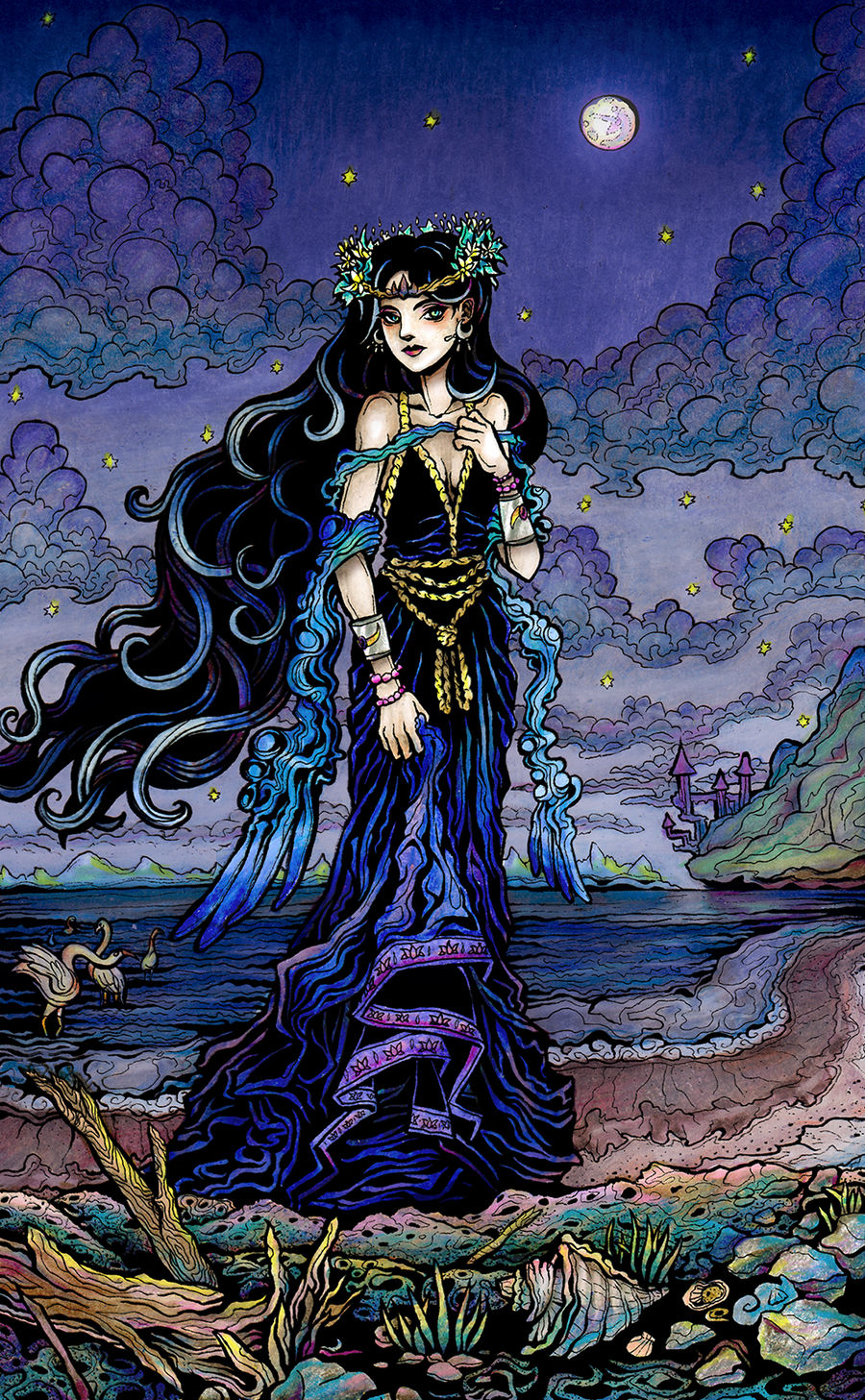
Princess Luna Moon Goddess by ElsewhereArts on DeviantArt
Diana the goddess of hunting and warfare was the Roman counterpart of the Greek Artemis. Diana was also the goddess of childbirth. Hence, Luna was also associated with Diana, as Selene was associated with Artemis. Thus, we see that in Greco-Roman culture, the Moon was associated with agriculture, love, fertility, childbirth and femininity.
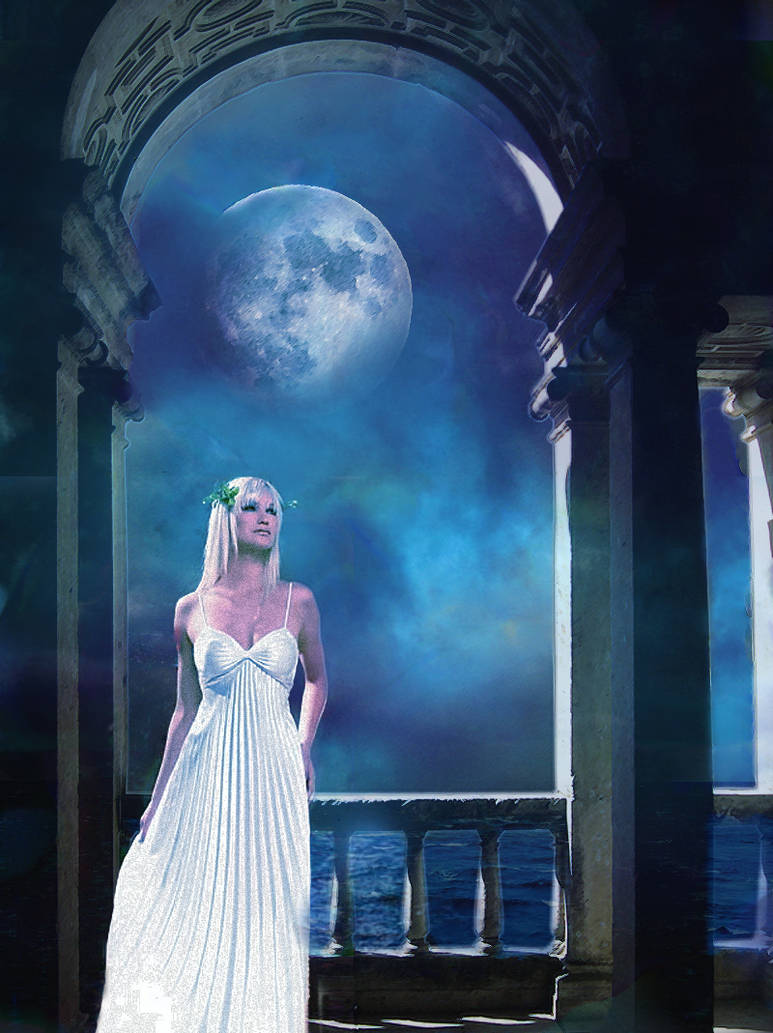
Selene, the moon goddess by Wolverica on DeviantArt
Artemis was a lunar goddess in Greek mythology. De Agostini / G. P. Cavallero / Getty Images Artemis is the Greek goddess of the hunt. Because her twin brother, Apollo, was associated with the Sun, Artemis gradually became connected to the moon in the post-Classical world.

Pagan Art Print Stargazer fantasy art pagan Etsy Wiccan art, Moon goddess art, Pagan art
Learn Blogs Luna, Moon Goddess By Jackie James - Volunteer Guide Luna's Backround Godly ancestry was important in Roman religion. According to Hesiod ' s Theogony, Luna is said to be the daughter of Hyperion and Theia. Hyperion was the Titan god of heavenly light and one of the twelve Titan children of Gaia (Earth) and Uranus (Sky).
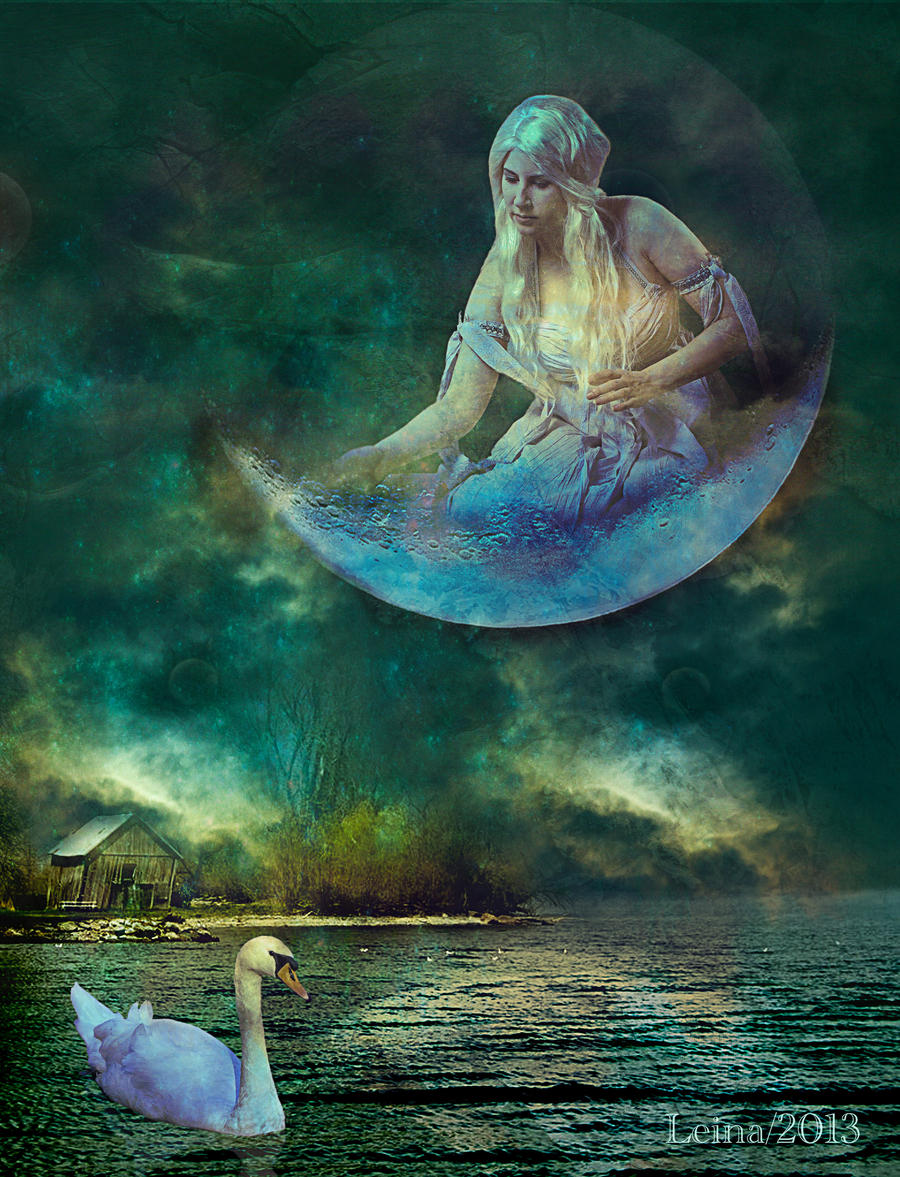
Que Dios controla la luna? startupassembly.co
Name: Luna. Alternate Names: Roman counterpart Selene. Role & Function: Luna is described as being the goddess of the moon. Symbols: The crescent moon and the two-yoke chariot (biga). She was often depicted with the crescent of the moon above her forehead. Patron: She is often depicted as a pale woman riding in a silver chariot, and was a.

Moon goddess Selene on her moon chariot Moon Images, Moon Pictures, Moon Madness, Mother Goddess
Her equivalent in Roman religion and mythology is the goddess Luna. [4] Etymology and origins Names Detail of a sarcophagus depicting Endymion and Selene, shown with her characteristic attributes of lunate crown and billowing veil ( velificatio) [5]

Luna Dea Arte Vespira stampa d'arte pagana Etsy Italia Moon goddess art, Pagan art, Goddess art
Illustration by Anthony Majanlahti published on 23 August 2019 Download Full Size Image An early Imperial (1st Century BCE - 1st Century CE) statue of Luna, the Roman goddess of the moon. The statue is a Roman copy of a 4th Century BCE Greek statue of Selene, Luna's Greek counterpart.